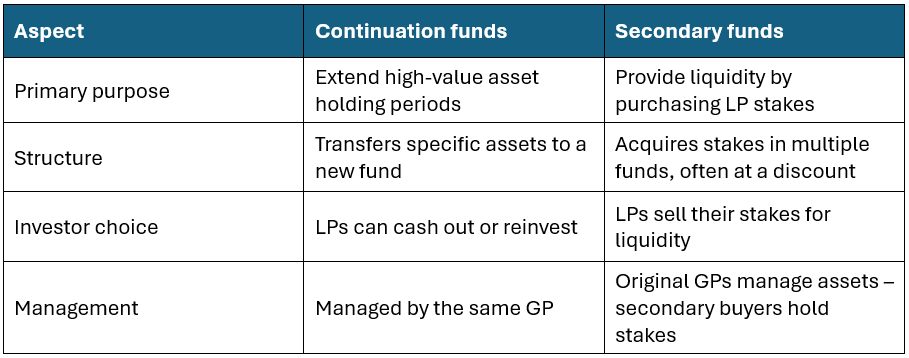Ahead of International Women’s Day this weekend, we asked our employees to share the female role models who inspire them the most. From trailblazing leaders and historical figures to mothers, sisters, daughters and colleagues, their responses reflect the incredible impact that women have on our lives, workplaces, and society.
Murielle Nya
Client Service Lead
Based in: Luxembourg
I refer to all women who have shaped our history as they paved the way for future generations and therefore all stand out as an inspiration to make the world a better place.
Jessica Savery
Fund and Corporate Officer
Based in: Luxembourg
The female leader who inspires me most is Emmeline Pankhurst for her fundamental work in the women’s suffragette movement.
Meriem Sala
Legal and Corporate Officer
Based in: Luxembourg
My role model is Christine Lagarde, a pioneering leader who has broken barriers in global finance. As the first woman to head both the European Central Bank and the IMF, she embodies the spirit of ‘who run the world, girls!’, inspiring women to lead and shape the future.
Karolina Czerwonka
Fund and Corporate Officer
Based in: Luxembourg
The female leader who inspires me is Maria Sklodowska Curie as she was the first woman to be awarded a Nobel Prize.
Callum Wilson
Senior Legal & Corporate Officer
Based in: Luxembourg
My own Mum: The embodiment of empathy, compassion, love, dedication and is strong beyond all measure.
Patti Smith: A trailblazing powerhouse who laid foundations for men and women alike to express themselves through art, music and writings.
Philippe Paul
Head of Investor Onboarding
Based in: Luxembourg
While I don’t have a specific name in mind, I would like to recognise the unknown women, those women we don’t talk about. The nameless women who deserve all the praise but never get it – so I’m taking a moment to think about them!
Peter Toft
Risk and Compliance Director
Based in: Luxembourg
I think several things make Serena Williams stand out as a role model. Firstly her work and training ethic and discipline that make her one of the greatest female athletes. But also, maybe even more, she had the mental capacity to come back after many setbacks, not only being injured but also discriminated against.
Greg McKenzie
Country Head of Luxembourg
Based in: Luxembourg
My grandmother, Estelle, is my female role model—quite possibly the hardest-working person I’ve ever known. Despite limited means, she raised five children while balancing countless responsibilities with unwavering resilience, dedication, and grace. Those values have been a guiding influence throughout my life.
Nick McHardy
Head of Fund Operations
Based in: London
Dame Judi Dench has made a massive contribution to the Arts through hard work, humility and her respect for others.
Ed Green
CEO
Based in: UK
The female leader who inspires me is Queen Elizabeth for her unflappable demeanour and for holding her own with fifteen different prime ministers.
Paul Lawrence
Group Managing Director
Based in: Jersey
Female leader who inspires me is Margaret Thatcher. She was more than just the first female UK Prime Minister, she was the longest serving Prime Minister of the 20th Century. As a result she not only transformed the UK political landscape, she put the UK economy on a different trajectory by leading free market principles and the privatisation a number of state owned entities. She was also a major contributor to the end of the Cold War.
She was often referred to as the “Iron Lady”, displaying the unwavering determination and resilience that would serve as an example to us all and undoubtedly served as a role model for women paving the way for many to follow her example.
Sandeep Lamba
Head of Fund Operations
Based in: Jersey
God cannot be everywhere and therefore he created my Mother. Mrs Jasbir Bholaram Lamba, my mother, inspires me with her humble take on life – to have patience, keep faith, never give up on your focus in life, maintain harmony, be God loving and always respect family and your elders. No wonder we call our home Mother Earth.
Adrian Franklin
Head of Operations
Based in: Jersey
Woman who inspires me most is Alice Franklin. Alice Franklin is my niece, and is a Graduate of the University of East Anglia. Alice has recently published her debut novel called Life Hacks for a Little Alien which is a heartwarming story about the linguistic awakening of a neurodiverse girl and her experiences in life. It is a very funny and relatable book that is a fantastic and inspirational achievement for Alice.
Liliana McDonnell
Financial Controller
Based in: Jersey
Female leader who inspires me most is Amal Clooney for her fearless advocacy!
Marylin Ajanaku
Operations Project Manager
Based in: UK
Female leader who inspires me most is Bozoma Saint John.
Alice Heald
Head of Marketing
Based in: Jersey
Female leader who inspires me most is Michelle Obama as she is a beacon of inspiration, proving that leadership is about resilience, leading by example and empowering others. A favourite quote of mine she once said is: “Don’t ever underestimate the importance you can have, because history has shown us that courage can be contagious, and hope can take on a life of its own.”
Alex Le Prevost
Associate Director
Based in: Guernsey
My female role models are my mother, wife and two daughters.
My mother for being the ultimate rock to our family through thick and thin, my wife for being a general superstar and fantastic role model to our kids and my two girls, who navigate their young lives with a smile and determination.
Hannah Dunnell
Guernsey Managing Director
Based in: Guernsey
Margaret Thatcher is my female role model, not necessarily for her policy or decisions (or shoulder pads for that matter) but because she paved a way for women being respected and accepted in senior leadership roles and exemplified the impact a female perspective can have in a multitude of situations.
Dom Rice
Manager
Based in: Guernsey
I chose my mum as my female role model because she has always inspired me by her grit and determination to tackle all life’s challenges head on.
Keeleigh Le Tissier
Senior Manager
Based in: Guernsey
I chose Hannah Dunnell (our Guernsey MD) as my role model as since I have been in the finance industry, she has always set a great example of empowering and educating women, and I would never have achieved what I have if it wasn’t for her leading the way.
Anna Robinson
HR Administrator
Based in: UK
My sisters inspire me in so many ways. Esmé’s resilience and strength drive her to do the best in everything she puts her mind to, while Amy’s hard work, supportive nature, and unwavering encouragement uplifts those she loves. Together, they remind people they are capable and worthy of anything they set their mind to, and they inspire me to be the best version of myself every day.
Georgi Krumov
Junior Accountant
Based in: UK
My mum inspires me as she has proven many times that anything is possible and your dreams can come true if you really desire it.
Kwesi Francis
CDD Team Lead
Based in: UK
I chose Dr Gladys West as an inspirational woman because her pioneering work in mathematical modelling was crucial to the development of GPS technology. Her contributions have had a profound impact on modern navigation.
Mariam Sunmonu
CDD Analyst
Based in: UK
My Mum was the true definition of a virtuous woman. She showed me how to be a great mum, supportive and loving spouse, trustworthy friend, kind & hospitable and most importantly she led me to God.
My Older sister inspires me by her act of service, her resilience through life’s challenges as a sole carer of four kids who also manages her business, she discharges her roles effortlessly. She is also very hospitable and has impeccable entrepreneurship skills. She is now my mum and my best friend.
Nassim Ait-Kaci
Junior Accountant
Based in: UK
I chose Katniss Everdeen as she embodies courage, resilience & selflessness. She defies tyranny, protects the vulnerable and sparks a revolution. Willing to die without fear, her love for her family fuels her bravery, proving that even against all odds, one voice is enough to ignite change. She inspires defiance, hope and strength!
Sugees Mahen
Head of Fund Accounting
Based in: UK
My wife is my greatest source inspiration, where she supports me 100% and doesn’t judge me for anything I do.
Join us in celebrating the resilience, strength, and inspiration of these remarkable women as we continue to champion gender equality and empowerment.
Happy International Women’s Day from Belasko!













